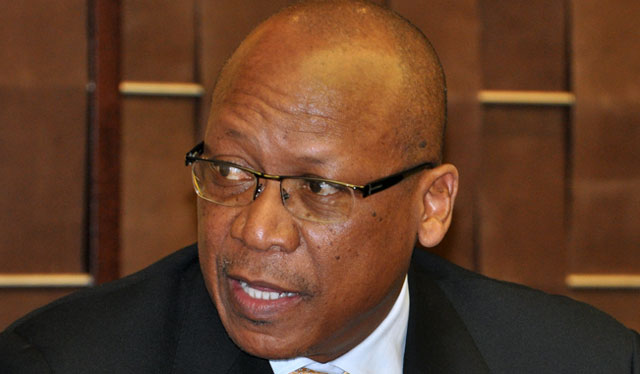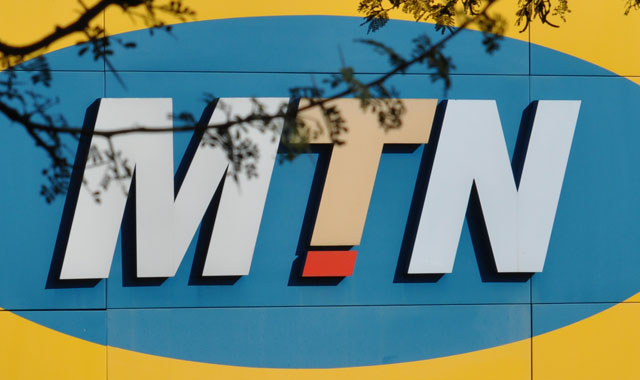
MTN has enlisted the help of the South African government and is meeting with Nigerian officials “at the highest level” as it moves to fight off a damaging US$5,2bn (R72bn) fine by the Nigerian Communications Commission (NCC), news of which wiped R64bn off its market value in three days this week.
A high-level MTN management delegation, led by group CEO Sifiso Dabengwa, has now flown into Nigeria for emergency talks with authorities over the fine, which threatens to wipe out MTN’s cash reserves and put its dividend in jeopardy.
News of the fine, which is almost double MTN’s group profit after tax of R37,7bn in the 2014 financial year, sent its share price into a nosedive. It shed almost 20% of its value between Monday morning’s open and Wednesday’s close. Uncertainty about the fine has also prompted a credit downgrade on MTN by ratings agency Standard & Poor’s.
The telecommunications group, which has operations in 22 markets across Africa and the Middle East, went to ground this week, issuing only two terse statements, one on Monday afternoon confirming a report on a Nigerian news website that the NCC had handed down the record-setting fine, and an update on Friday morning saying it was in discussions with authorities there.
But company insiders this week expressed disbelief and outrage at the way the matter has been handled by the Nigerian authorities.
It is understood reliably that MTN management first learnt of the commission’s fine after it was reported in the media in the early hours of Monday morning. MTN had been in discussions for at least a month with the NCC about the commission’s insistence that unregistered subscribers be disconnected in terms of Nigeria’s tough new Sim card registration law. The commission has accused MTN of ignoring a deadline of 11 August to cut off 5,1 Sim cards that had not been registered as required by the legislation, which, like the Rica law in South Africa, is aimed at combating crime and terrorism, a major problem for the West African nation.
MTN has not denied the NCC’s accusation but has, subsequent to the expiry of the deadline, cut the 5,1m Sim cards from its network.
The operator, which is listed on the JSE, has come under fire for not alerting shareholders earlier about the fine. The group first issued a statement to shareholders at 2.24pm on Monday, more than 10 hours after news of the penalty first emerged.
TechCentral has learnt that MTN will provide a detailed timetable of events to investigators, if requested to do so, to show that it complied with JSE rules. Company insiders have rubbished suggestions that insider trading took place.
It’s understood that MTN issued the statement to shareholders only once it was able to ascertain from Nigerian authorities that the media reports about the fine were, in fact, correct. Company insiders say the NCC failed to notify it about the fine before the information was leaked to journalists and it was only able to confirm the veracity of the media reports after approaching the commission itself.
The looming expiry of MTN’s operating licence in Nigeria — it must negotiate its renewal in the first half of next year — could be one of the factors behind the shock fine, insiders believe. There’s a worry it may be an attempt at influence peddling, despite moves by the newly appointed president, Muhammadu Buhari, to crack down on corruption.
Another theory that is being widely entertained is that Nigeria is looking for new sources of revenue following a precipitous decline in income from the oil industry as oil prices collapsed. The telecoms sector may be seen as a soft target to raise government receipts, with MTN the leading target as it is by far Nigeria’s biggest and most profitable operator. MTN Nigeria generated earnings before interest, tax, depreciation and amortisation of R31,6bn in 2014 — 46% of the group total. However, not all analysts believe this is primarily a revenue-raising exercise.
Worryingly for shareholders, media reports suggest that things may get even worse for MTN in Nigeria. Leadership, the Nigerian publication that broke the news of the fine, has subsequently reported that the NCC has terminated all regulatory services to MTN until it coughs up the $5,2bn. It has also reportedly given MTN until 16 November — a little over two weeks from now — to pay the fine or “face the consequences”, which it hasn’t spelt out. The suspension of regulatory services could put negotiations for the renewal of its operating licence, which expires in June 2016, in jeopardy.
In a report on Tuesday, Leadership cited an NCC quarterly compliance document that outlined numerous “infractions” by MTN. The document reportedly accuses MTN of “persistent violations” of the country’s telecoms regulations. This has “forced” the NCC to impose the “unprecedented sanction of suspending all regulatory services to MTN following its accumulation of over 28 separate and proven infractions”.
“This unprecedented fine is indicative of the magnitude of the transgression and the seriousness with which the NCC and the authorities are approaching this issue. It is also more likely to ensure that the wilful noncompliance by MTN ceases,” the NCC document reportedly says.

It is “not an isolated incident” and “needs to be seen in the context of a general pattern of noncompliance with regulatory directives that actually predates the current Sim registration infractions”.
But most analysts this week said the size of the US$5,2bn fine imposed by the commission is out of all proportion to the alleged infringement and they don’t believe the group will have to pay anywhere near the quantum being sought.
The NCC fined MTN 200 000 naira (about $1 000, or nearly R14 000) for each of the 5,1m Sim cards that were not disconnected by an 11 August deadline. Yet MTN’s average revenue per user in Nigeria is less than $5/month.
Dobek Pater, MD of telecoms consultancy Africa Analysis, said it’s not the first time MTN has run foul of the Nigerian telecoms regulator. In the past, it’s been sanctioned for poor network quality, even prevented from selling new Sim cards until the NCC was satisfied it had rectified the problems.
However, the latest fine is by far the harshest penalty the commission has imposed and could simply be the starting point of a negotiation, Pater said. “It might be about putting MTN in its place, so to speak, and a warning to anybody else that tries to behave anticompetitively or disregard regulations.”
However, he said the fine could end up backfiring on the Nigerian government. “It could prove to be short-sighted of the NCC or for the Nigerian government to start punishing companies that are big contributors to the economy.”
It could have the effect of scaring away foreign investors, Pater said.
But a leading Johannesburg-based investment banker, who asked not to go on the record because the “sensitivity” of the matter, said MTN could find it difficult to negotiate a meaningful reduction in the NCC fine.
“MTN was told in no uncertain terms that it had to disconnect these Sims and if it didn’t it would be fined 200 000 naira per Sim,” the investment banker said. “The potential consequences have been out there for some time. The operators were perfectly capable of doing the maths.”
He played down a suggestion that by imposing a fine of this magnitude, Nigeria is shooting itself in the foot. MTN can’t afford to stop investing its network in Nigeria, he said.
“That’s not credible. It’s MTN’s single most important asset. It doesn’t really have any choice other to keep investing, except maybe to sell it. What it can’t do is not invest and watch the value of that asset wither.”
The banker also downplayed talk that the sharp sell-off in MTN shares would attract potential suitors such as India’s Bharti Airtel, which previously made a bid to buy the group.
“I’m not sure it’s any more of a likelihood that it has been in the past. If someone were to buy MTN, they’d have the same issues to deal with in Nigeria. The key issue is whether the risk is limited to the fine or whether there are any knock-on implications. If they pay the $5bn fine, is that it, is it done? Or does the fine call into question whether they’re fit and proper to be holding a licence in Nigeria?”
- This article was first published in the Sunday Times
- Duncan McLeod is TechCentral’s editor




